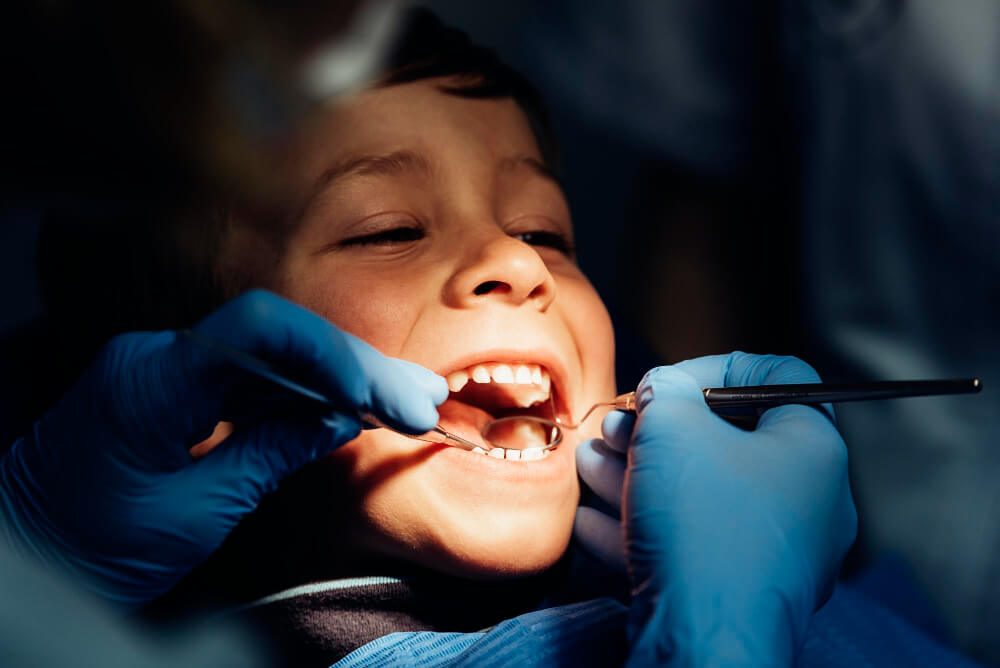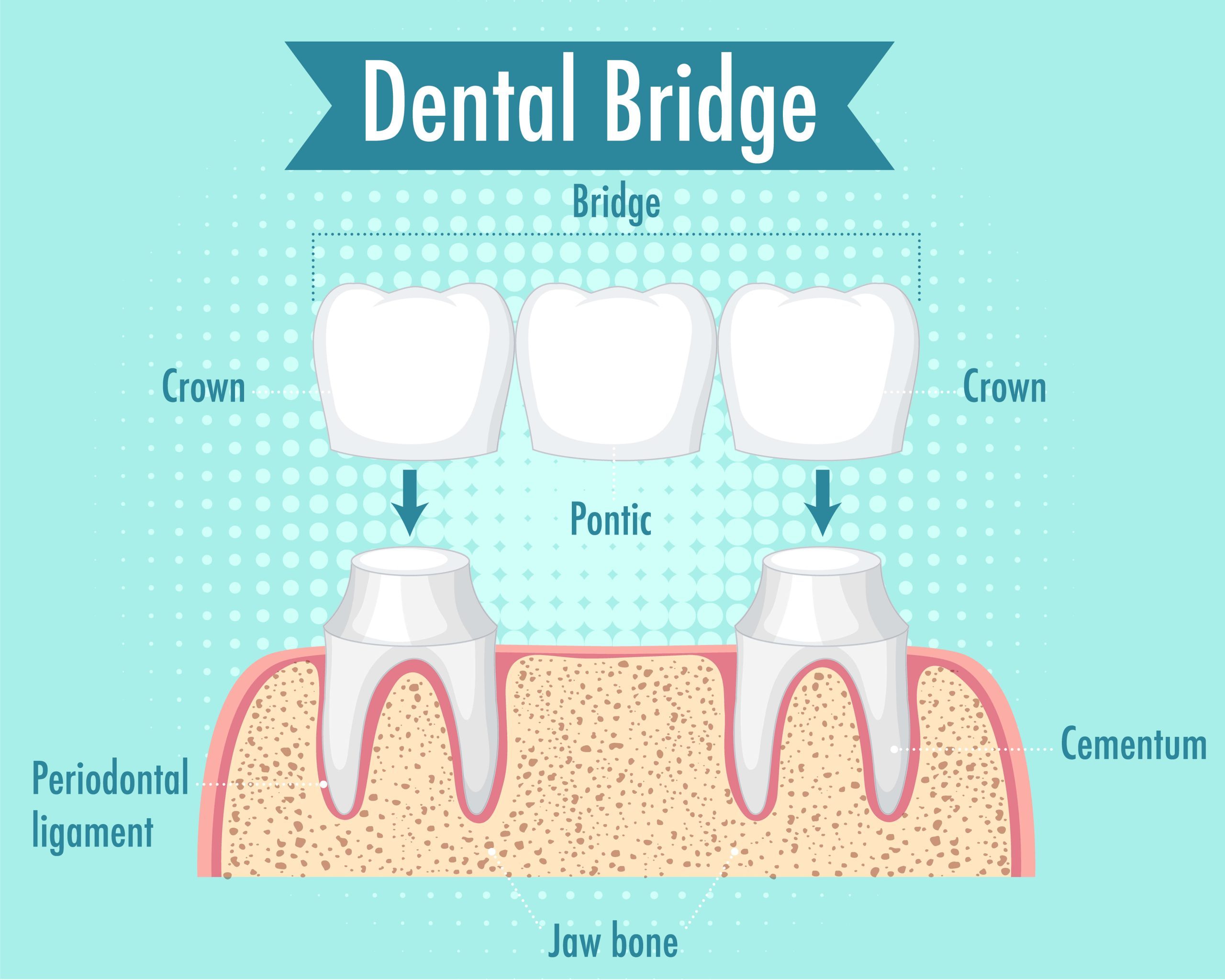Ask the Dentist: Is It Normal to Lose Teeth as You Get Older?

Introduction
Tooth loss is often considered an inevitable part of aging—but is it truly “normal”? While many believe that losing teeth is simply a result of getting older, modern dentistry and preventive care show otherwise. At My Local Dentists, one of the most common questions we hear is:
“Is it normal to lose teeth as you age and get older?”
The short answer is no—losing teeth is not a natural part of aging, and with proper care, your teeth can last a lifetime.
In this article, we’ll break down the myths and facts about age-related tooth loss, explore the main causes of adult tooth loss, and share actionable tips on how to keep your smile healthy well into your senior years. Supported by insights from the Australian Dental Association (ADA), American Dental Association (ADA), and evidence-based studies, we’ll help you protect your teeth and avoid unnecessary tooth loss.
1. Is Tooth Loss a Normal Part of Aging?
The belief that tooth loss is an inevitable part of aging is not correct and outdated. While it’s true that older adults are more likely to experience dental issues, age itself is not the cause of tooth loss. According to the Australian Dental Association (ADA), healthy gums and teeth can be maintained throughout life with proper oral hygiene, routine check-ups, and a healthy lifestyle. It’s like when you take your car for regular car servicing, you have less problems, the car runs smoother and the value of the car is often higher because it’s well maintained.
Fact: The ADA emphasises that “Tooth loss is not an inevitable consequence of aging. With the right care, adults can retain all their natural teeth for life.”
So, if you’re brushing twice a day, flossing daily, avoiding excessive sugar and processed foods, and visiting the dentist regularly, there’s no reason you should expect to lose your teeth as you grow older.
2. Why Do Adults Lose Teeth?
Understanding why tooth loss occurs is essential for prevention. In adults, teeth are generally lost due to:
- Gum Disease (Periodontal Disease)
- Tooth Decay (Cavities)
- Trauma or Injury
- Poor Oral Hygiene
- Lifestyle Factors (Smoking, Diet)
- Systemic Conditions (e.g., Diabetes, Dry Mouth, etc)
Each of these factors is preventable or manageable with the right dental care and habits.
3. Common Conditions Leading to Tooth Loss
1. Gum Disease (Periodontitis)
Gum disease is the leading cause of tooth loss in adults. According to the American Dental Association, nearly half of adults aged 30 and older show signs of periodontal disease. In Australia, data from the Australian Institute of Health and Welfare (AIHW) found that 1 in 5 adults over 65 suffer from severe periodontal disease.
Gum disease begins with gingivitis (inflammation of the gums) and can progress to periodontitis, where the supporting bone and tissue deteriorate—causing teeth to become loose and fall out.
Risk factors for gum disease include:
- Poor oral hygiene
- Smoking
- Hormonal changes
- Diabetes
- Certain medicines
2. Tooth Decay and Cavities
Decay can destroy the structure of a tooth. If not treated, decay progresses into the pulp and can cause infection. In cases where root canal therapy or restorations aren’t performed in time, extraction may be the only option.
Older adults are more prone to:
- Root caries (decay near the gum line or root surface)
- Dry mouth (xerostomia) from medicines, reducing protective saliva
- Worn fillings and crowns becoming sites of new decay
3. Injury or Trauma
Falls, sports injuries, or accidents can lead to fractured or knocked-out teeth. While not age-specific, the elderly may be more prone to falls, increasing the risk of dental trauma.
4. Medical Conditions and medicines
Systemic health plays a major role in oral health. Diabetes, osteoporosis, and autoimmune disorders can weaken gum and bone tissue. Additionally, medicines like antihypertensives, antidepressants, and chemotherapy drugs can affect saliva flow, increasing decay risk.
4. Warning Signs You Shouldn’t Ignore
Being aware of early signs of gum disease or decay can help prevent tooth loss. Contact your dentist if you notice:
- Bleeding gums while brushing
- Persistent bad breath
- Receding gums or loose teeth
- Tooth sensitivity or pain
- Visible decay or dark spots
- A shifting bite or change in the way teeth fit together
Early detection = easier, less expensive treatment.
5. Preventive Steps to Keep Your Teeth for Life
Good oral hygiene and regular dental care are your best weapons against tooth loss. Here are key strategies recommended by both ADA bodies:
1. Brush and Floss Daily
- Brush twice daily with fluoride toothpaste
- Floss once a day to remove plaque between teeth
2. Routine Dental Visits
- Visit your dentist every 6 to 12 months
- Professional cleans and exams can detect issues before they escalate
3. Eat a Tooth-Friendly Diet
- Minimise sugary and acidic foods
- Eat calcium-rich foods like leafy greens, almonds, and dairy
- Drink plenty of water
4. Quit Smoking
Smoking is a major risk factor for gum disease and bone loss around teeth. According to the ADA, smokers are twice as likely to lose teeth compared to non-smokers.
5. Manage Chronic Conditions
- Keep blood sugar under control if diabetic
- Discuss medicine side effects with your GP or dentist
6. Consider Dental Sealants or Fluoride

These preventive treatments, often used for children, can also help adults at risk of decay, especially root caries.
6. What to Do if You’ve Already Lost a Tooth
Losing a tooth isn’t the end—it’s an opportunity to explore modern tooth replacement options.
Dental Implants
A permanent, strong and natural-looking solution that helps maintain jawbone health.
Dental Bridges
Fixed crown restorations that fill gaps between the teeth by using the adjacent teeth for support of a connected crown and bridge structure

Dentures
Removable prosthetics that replace several missing teeth.
Replacing lost teeth improves:
- Chewing and nutrition
- Speech clarity
- Facial appearance
- Self-confidence
- Bone preservation
Tip: The sooner you replace missing teeth, the better the long-term outcome for your oral health.
7. What the Professionals Say – ADA and Research Insights
Numerous studies support the idea that tooth loss is preventable and not inherently linked to aging.
Australian Dental Association (ADA)
The ADA advocates for maintaining natural teeth for life. In their guidance on healthy aging, they emphasise that regular preventive dental care and attention to dry mouth, medicine effects, and dietary habits are essential for preserving teeth in older age.
American Dental Association (ADA)
The U.S. ADA echoes the same, stating:
“While older adults are more likely to experience dental issues, age alone is not the reason teeth are lost. Rather, it’s the accumulation of untreated dental diseases.”
Research Studies
- A study published in the Journal of Dental Research found that preventive visits significantly reduced the risk of tooth loss in older adults.
- The Australian Burden of Disease Study 2022 identified that poor oral health contributes significantly to reduced quality of life and increased health burden among older Australians.
- A 2021 review in the International Journal of Environmental Research and Public Health found that tooth loss correlates more strongly with socioeconomic factors and access to care, rather than biological aging alone.
Final Thoughts: Keep Your Teeth for Life
To answer the original question:
No, it is not normal or inevitable to lose your teeth as you get older.
With advancements in dental care, access to information, and modern preventive strategies, you can keep your natural teeth for life. Tooth loss is largely preventable—and at My Local Dentists, we are here to support your journey to lifelong oral health.
If you’re concerned about the health of your teeth or gums, don’t wait. Book an appointment with one of our friendly dentists at My Local Dentists today for a comprehensive check-up and personalised advice. We provide affordable, high-quality dental care for all ages—and our goal is to help you smile with confidence at every stage of life.
References
- Australian Dental Association (www.ada.org.au) – Oral Health Advice
- American Dental Association (www.ada.org) – Adult Dental Health Topics
- Australian Institute of Health and Welfare (www.aihw.gov.au) – Oral Health Data Reports
- Journal of Dental Research – Preventive Visits and Tooth Loss in Older Adults
- International Journal of Environmental Research and Public Health – Systematic Reviews on Tooth Loss Risk Factors (2021)
